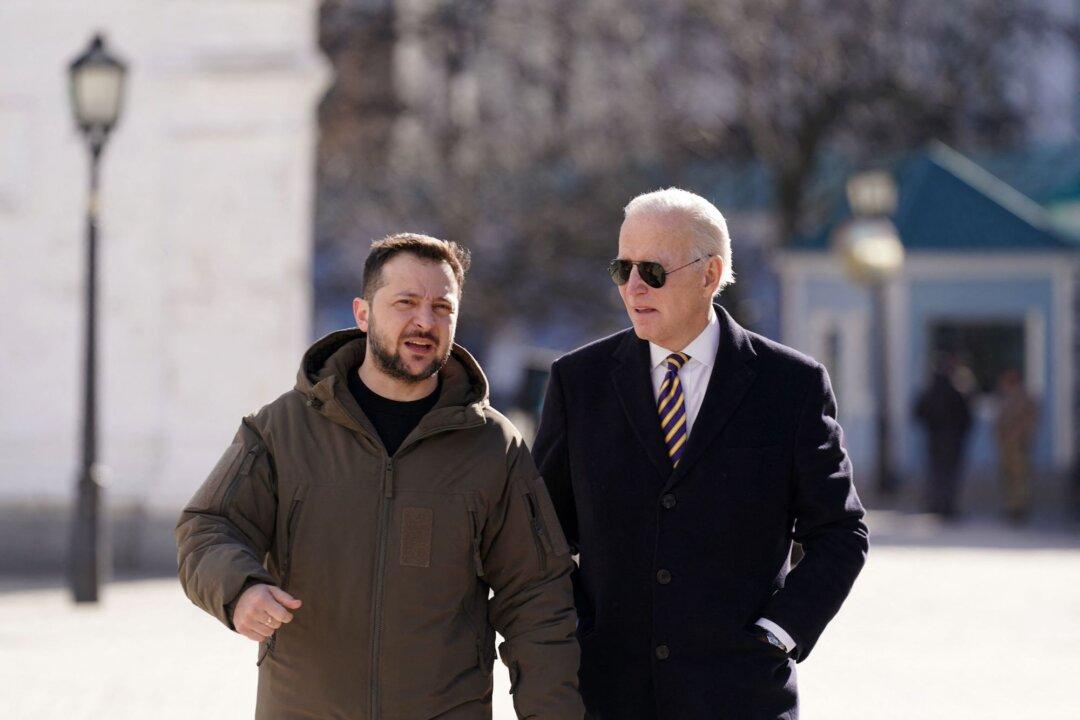The United States informed Russia about President Joe Biden’s visit to Kyiv hours before his departure, according to White House national security adviser Jake Sullivan.
“We did notify the Russians that President Biden will be traveling to Kyiv. We did so some hours before his departure for deconfliction purposes,” Sullivan told reporters during a conference call.





